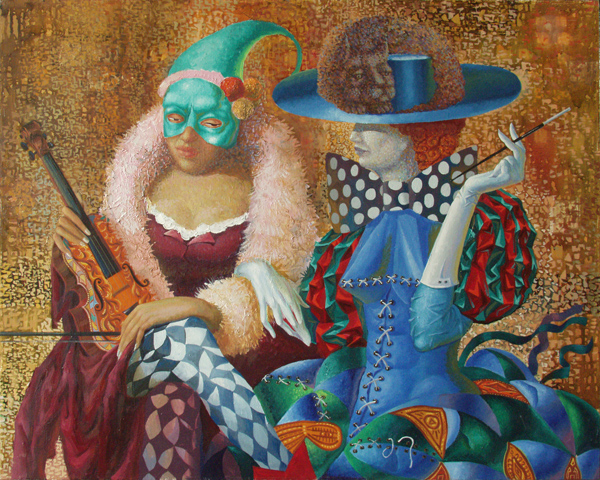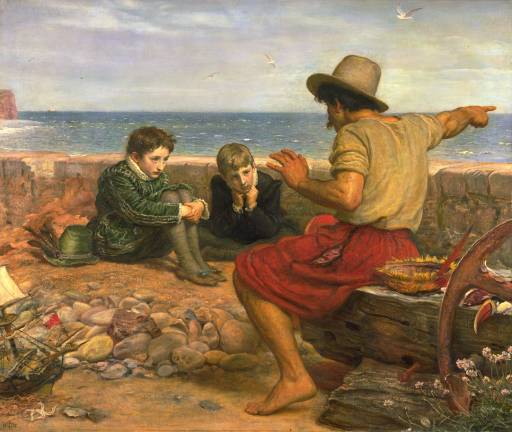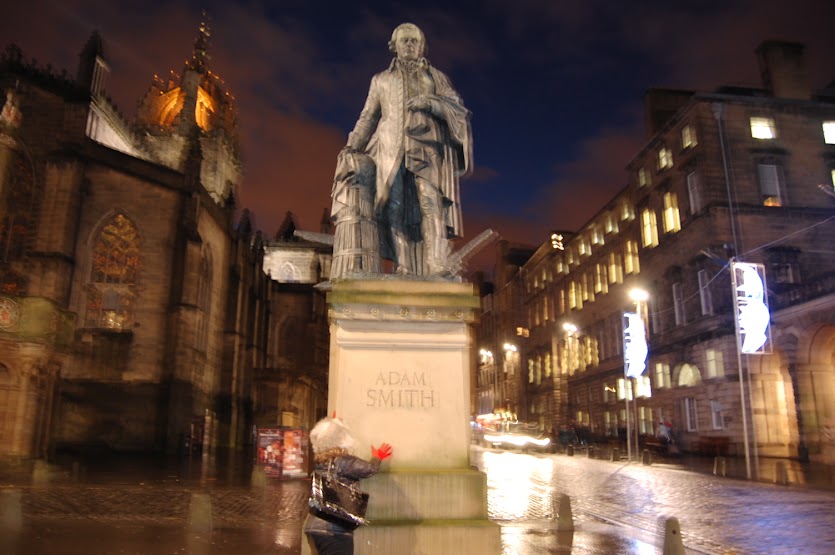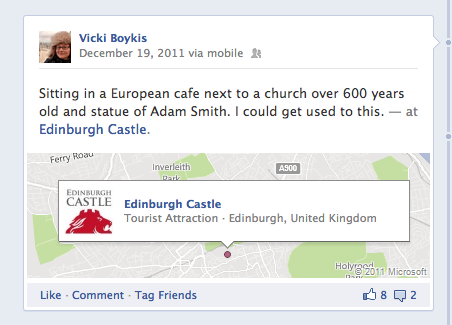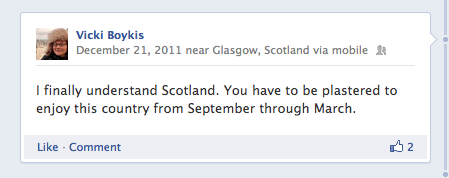How writers lie (or, eel-hunting)
Carnival Duet 2, Andrei Shwidiky
Elif Batuman, one of my favorite writers (who else has the Twitter handle Banana Karenina?), wrote in semi-defense of Mike Daisey‘s blatant lying of his portrayal of his investigation at the Foxconn Apple factory in China last month. Since she herself wrote a memoir about the quirks of being in a Russian Studies graduate progrma that was beautiful and odd precisely because it was true, she had some thoughts about Daisey’s lie:
But I think the critique Mike Daisey got isn’t quite the critique he deserved. I think his offense is less the misrepresentation of truth than self-aggrandizement. It’s important that he didn’t invent the stuff out of nowhere. He just said that he was there when he wasn’t.
Somehow, to me, the labeling isn’t the most important thing here. I guess I’m not that disturbed by the liberties that Daisey took with the facts. He set out to tell a story about working conditions in Chinese factories, in a way that would affect public opinion and eventually maybe public policy. And he did tell such a story. And This American Life checked that story, and it checked out. I don’t feel betrayed or manipulated. The phenomenon he described, and got people to care about, was real.
One of the things the Tao of Travel shows is how unforthcoming most travel writers are, how most travelers are. They don’t tell you who they were traveling with, and they’re not very reliable about things that happened to them. For example, everyone loved John Steinbeck’s book Travels With Charley. Turns out he didn’t travel alone, his wife kept meeting him, yet she was never mentioned in the book. Steinbeck didn’t go to all the places he mentioned, nor did he meet all the people he said he met. In other words, Travels With Charley is fiction, or at least half-fiction.
We stepped back out onto the street and I spotted a statue of Adam Smith, who was always one of my heroes when I was studying economics, but who I never realized was Scottish. Did Scottish people have British last names, I wondered as I groped the statue for a few candid shots of me climbing Adam, me hugging Adam, me taking Adam’s hand. How could you tell British people and Scottish people apart if they had the same names? When did Scottish names come about?
We retired to a café to drink cappuccino and read BBC on our iPad. It finally stopped raining, and we were finally warm. Life was good. However, as a Russian, you learn to live with guarded pessimism, and it served me well for Scotland.
Groping Adam Smith, Boykis
It’s boring, right? I mean, maybe kind of funny, very painfully earnest, and really, really boring. I was really thinking all of those things, and seeing the statue of Adam Smith was really important to me because he was the first economist I learned about, and how conveniently cool that he also turned out to be Scottish, and that we stumbled upon him by accident. It was also so cool to me that I could sit and drink coffee next to Adam Smith and really old stuff:
But the way I remembered the memory didn’t translate well on paper and wasn’t interesting to ayone except for me. So I took it out completely.
Does it mean that the book is 100% false? No. The spirit of the book is 100% true. Everything I’ve written about really happened as well, to me. The only question is the degree.
Here’s another very early shitty first draft, of the introduction:
There was no single event that turned me into a Scottish nationalist. It was the sum of the minutiae of five days quietly observing an ancient-but nascent- country going about its day-to-day business. It was the thousands of sheep in quiet misty fields, a tiny saltire waving quietly from a fallow windowbox planter in Inverness, the glimmer of the ghost of the sun on Loch Ness, the tiny snippet of Gaelic overheard in a café filled entirely with overenthusiastic amateur Japanese photographers who annoyed the shit out of me.
All of that was true, too. That’s really how I felt, exactly when I felt it, with all the boring, glowing details about travel no one cares about. “Glistening lakes, ephemeral fields,” all of this is great in your head. But, like the millions of pictures you want to show people when you get back, no one cares.
I couldn’t get an introduction that pulled anyone in. I was bored by reading my own writing.
Then, finally, Mr. B said, “Stop writing around the issue. Just be yourself. Stop describing everything in detail and get down to the heart of what you wanted to say.” “But what if people I know read this book? I’ll feel so vulnerable.” “That’s the point, isn’t it?”
So I lay curled on the floor in a fetal position for fifteen minutes. I took my imaginary audience entirely out of my head until it was just me, writing for me. I remembered what I had written mid-journey:
And I got up, sat at the computer, and wrote,
Scotland has shitty food, godawful weather, and no political future.
I love Scotland so much.
And it wasn’t 100% true, because not all the food in Scotland was terrible, nor because my love for Scotland was all-encompassing. But it was true enough and funny enough to mean everything I meant. And I kept it as the beginning of my book.
As writers and performers, especially for non-fiction, we are constantly on the wrong side of a math equation. The truth is out there, like an eel, and we are always asymptotically trying to approach it, to get our hands around it, but we never quite succeed. If we’re writing non-fiction, especially, be it a book or a blog, we don’t want to lie. But sometimes the truth is boring and it doesn’t fit in with our narrative. Sometimes what we mean by the truth is different than how the reader perceives it.
So, on one level, I understand Mike Daisey’s need to embellish his story in order to highlight the truth as he thought he saw it, and I understand Elif’s defense of him. I understand that John Steinbeck didn’t mention that he stayed at pretty nice hotels instead of his camper during his trip.
But the second level of writing is that we need to get as close to that asymptote as possible, no matter how boring it is, and make it not-boring. As writers, we need to grab our net, and start eel-hunting, both for the sake of the reader, and more importantly, for the sake of ourselves.
And if we can’t get as close as possible to the truth, we need to let people know.
“Hey, I couldn’t grab the eel, but I glimpsed, and boy, it was glorious. Here’s what I did see as it moved away from me in the murky water.”
